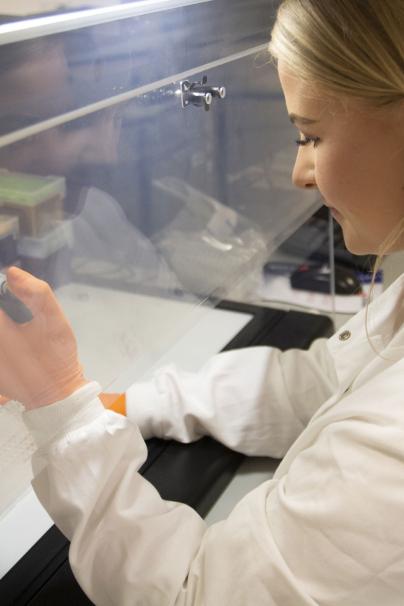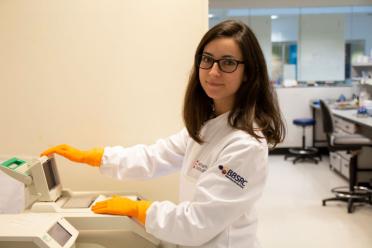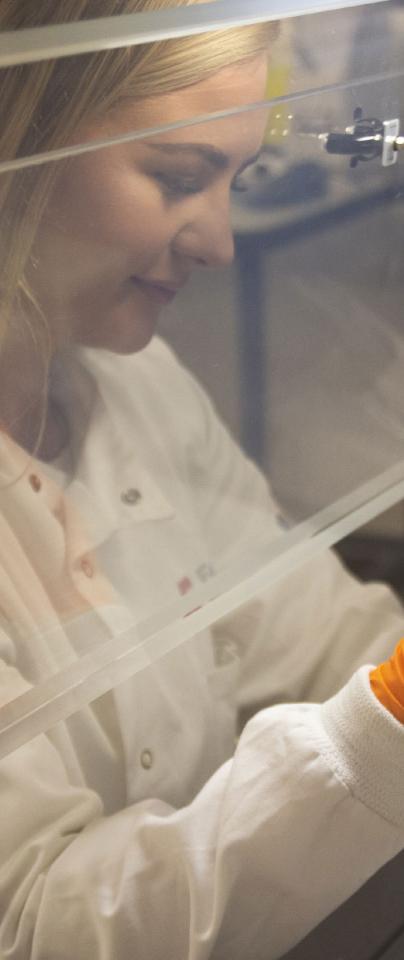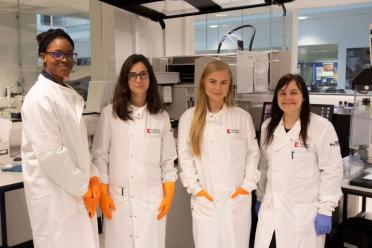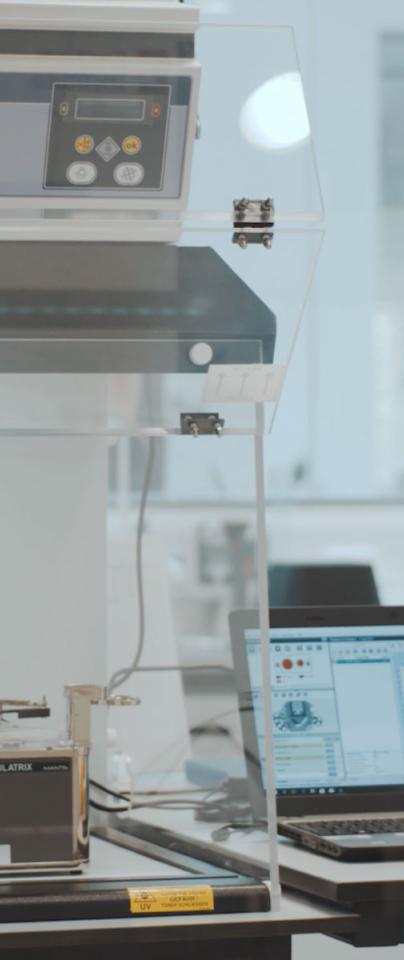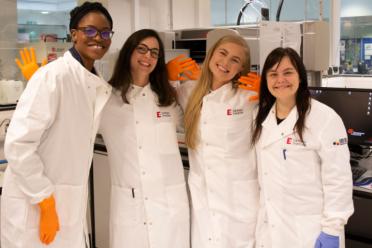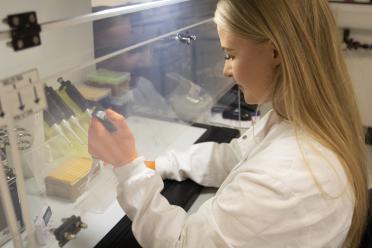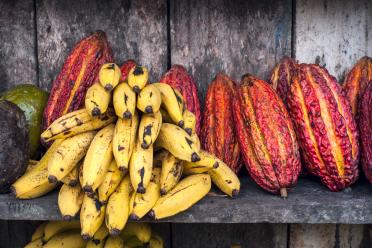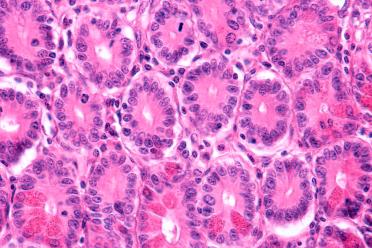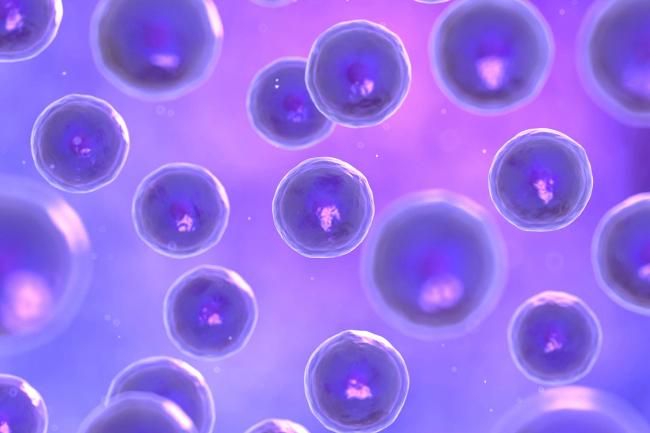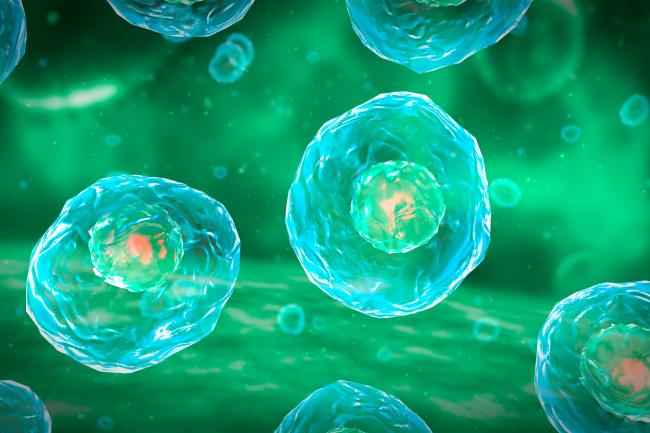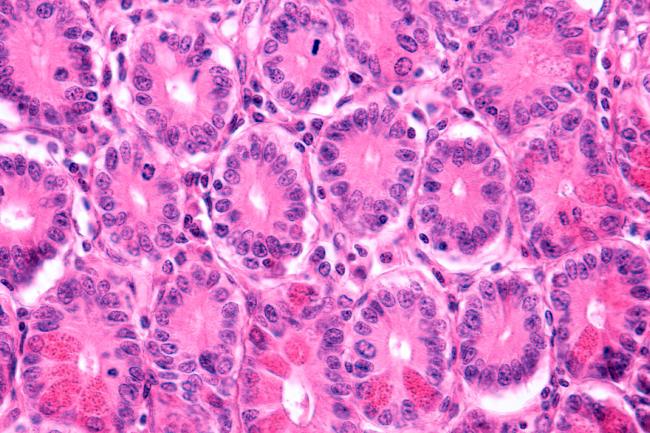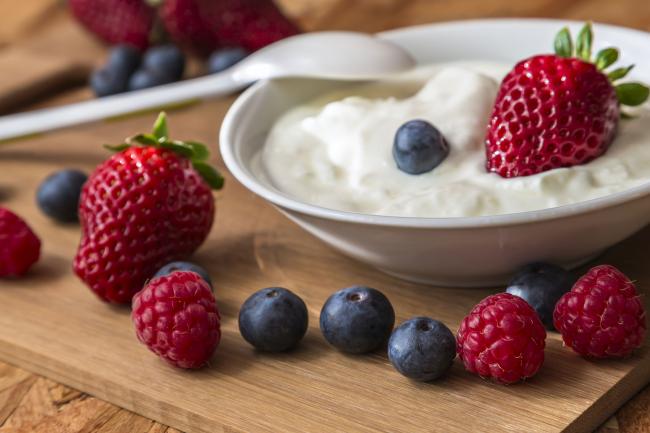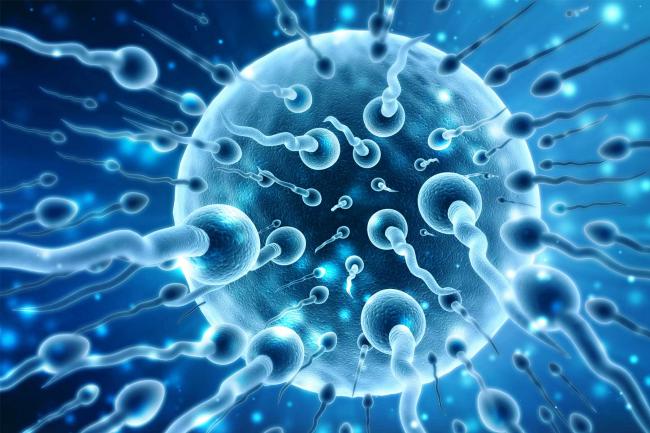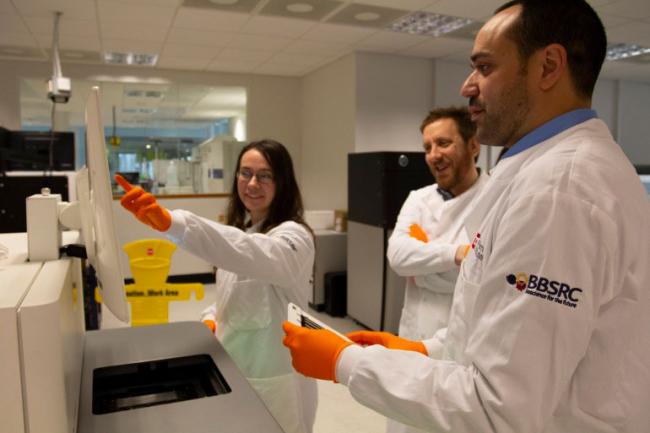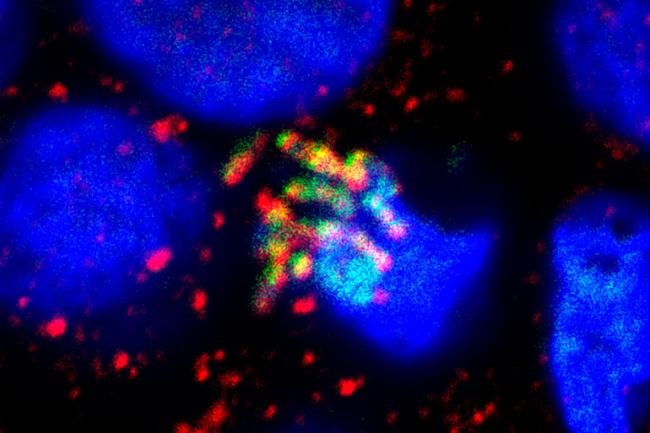As a Research Assistant, sometimes the ‘career’ moves I followed were based on the skillset I had acquired and upcoming grants; saying that, every new job has been more exciting. My position in the Macaulay lab is the best so far and suits my interests; the way that I like to work and surrounded by influential and supportive people.
Previously, I had been in various molecular genomics roles, leading to working with the Genomics Pipelines Group at EI where I learned everything there was to know about automation, library construction and sequencing. With this extra knowledge, and the skills I had from previous roles (cell culture, microscopy cDNA synthesis and RNA and DNA extractions) I could use this experience to apply for my current role.
In my assistant role, sometimes I feel like I don’t have a specific project as we have a huge amount of collaborations in part due to our BBSRC Capability status, but also because of our core location here at Norwich Research Park. I have worked on diverse projects sequencing diatoms, protists, zebrafish sperm cells, cow immune cells, human immune cells, mouse blood cells, cancerous cells, chick embryonic cells, as well as arabidopsis plant protoplasts made from tapetal cells and leaf tissue.
My current project is studying a cell type called meiocytes, which are cells going through meiosis, in wheat. I would like to understand the mechanisms that control meiosis (a type of cell division responsible for the development of sexual cells required for breeding such as the sperm and oocytes). By understanding more about the mechanisms behind breeding, we can use this to aid the introduction of useful traits such as pathogen resistance, environmental tolerances or increased yield.
As it’s not common practice, I would like to see single-cell genomics applied to plant cell biology to increase our understanding of plant biological systems including breeding, pathogen resistance and nutrient uptake. It will also be of importance in the generation of genetically-modified crops and the understanding and efficiency of the current process. Another big impact is looking at the composition of the microbiome of healthy, immunocompromised, antibiotic-treated, or ill patients and how this affects their future health. There are a few scientific groups that are looking at microbiome replacement therapies, and this is really promising.
I have an idea that would greatly increase the rate of plant breeding using some of the protocols I am currently developing but including extra steps. There are impossibilities in a couple of stages currently, so even years on if I could get this whole, dream protocol to work, it would be incredibly useful in feeding the world’s ever increasing population.
